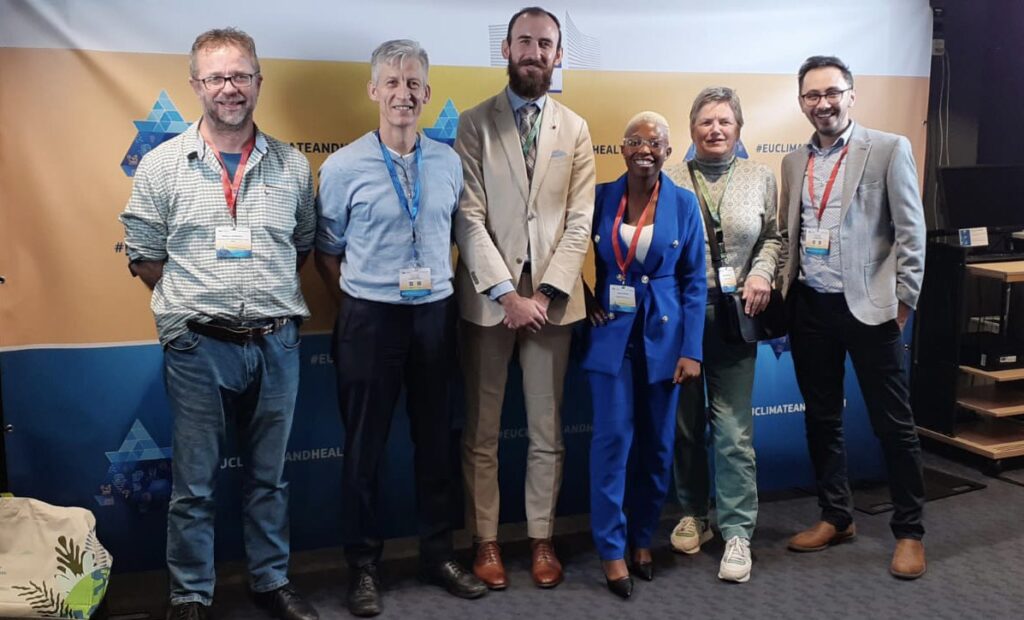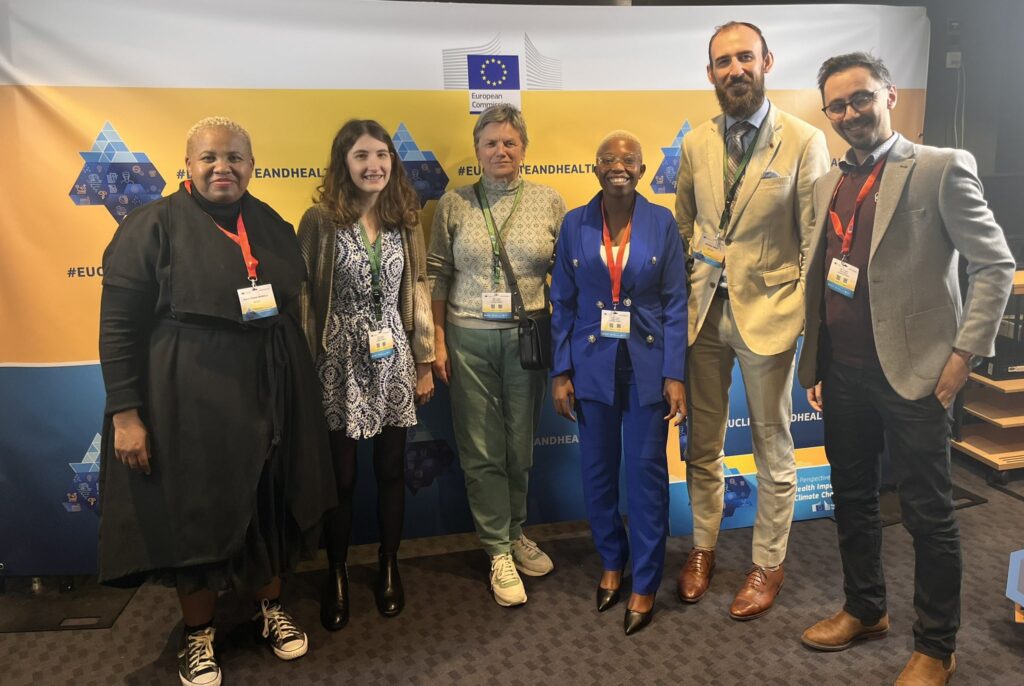HIGH Horizons joined colleagues across the European Climate Health Cluster, to attended the ‘Research Perspectives on the Health Impacts of Climate Change’ Conference in Brussels, on 19 and 20 February.
The high-level conference, organised by the Directorate-General for Research and Innovation of the European Commission, was set out to bring together researchers, policymakers and relevant stakeholders to reflect on the research needs in the field of climate change and human health.


Across the two day conference, delegates from across the globe shared research, highlighted key priority areas and discussed the forward-looking research agenda at the intersection of climate change and health. Members from the European Climate Health Cluster’s six projects, BlueAdapt, CATALYSE, CLIMOS, HIGH Horizons, IDAlert and TRIGGER, were active across all aspects of the conference.
From plenary presentations, co-organising a parallel session and contributing to evidence and discussions in various other parallel sessions, sharing project research during poster sessions, to the final plenary featuring early career researchers from all the cluster projects, there was a lot of opportunity to share our early findings and future plans.
The conference brought together diverse perspectives and a comprehensive understanding of ongoing research as well as current challenges. There were several key themes reflected across the sessions:
Collaboration
A key takeaway from the conference was the need to increase and improve on collaborative efforts to tackle the growing challenge of climate change and its impacts on health. There was open discussion around the need for cross disciplinary and transdisciplinary research that ensures the inclusion of generational and cultural differences.
Adaptation and mitigation
The need for strategies to tackle the impacts of climate change were clear. However, emphasis was placed on the necessity for both adaptation and mitigation strategies together to achieve this quickly and effectively. The importance of robust evaluations of these strategies and routes to disseminate learnings was also highlighted as an essential route to progression.
Gaps and Opportunities
Whilst it was evident there is an abundance of work making progress in climate change and health, delegates were keen to also discuss knowledge gaps and future opportunities for innovation. One such area that was discussed in almost every plenary and panel session was the impacts of climate change on mental health. While the understanding of its importance was shared across the conference, it is evident that this is a gap in research that needs to be bridged.
Policy and Practice
There was an emphasis throughout the conference on how research can impact policy. A plenary speaker commented that we need policy-literate researchers and research-literate policymakers and this was echoed throughout the rest of the conference in many sessions. The need for research to translate into action is essential and while policy implementation is currently slow, we should strive to ensure there are clear paths of communication with policymakers to support understanding of research and facilitate the implementation of evidence-based, robust climate and health policies.
Much of the work by the cluster exemplifies these themes in action, particularly the strong collaborative efforts, and work on strategies to tackle the health impacts of climate change. The Climate Health Cluster were delighted to have contributed to these crucial conversations and the understandings and learnings from this high-level conference will continue to drive the work across the cluster to ensure we contribute to a more resilient Europe, and beyond.
Carla Maia, CLIMOS and current cluster coordinator, said: “Meeting with people working in the climate and health area helps us develop our thinking, helping identify future research directions and developing new partnerships.”
Raman Preet, IDAlert and past cluster coordinator, said: “The gaps in understanding adaptation to the health risks of climate change and health are stark. Future work needs to engage with the Global South in a more meaningful way and focus on evaluating effectiveness to help inform policy.”
